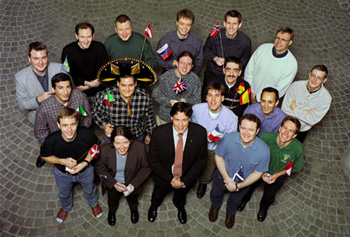Exact number of languages on planet Earth remains unknown
Majority of researchers believe that language appeared half a million of years ago

The notion of 'languages of the world' first of all covers so-called native idioethnic languages, in other words the native languages of people living today or some time ago on the planet. People learn these languages in a natural way when human speech develops. These languages serve for everyday communication, and sometimes people learn through other spheres. Russian, English, Arabic, Chinese, Tatar and other languages belong to the idioethnic group. Some Creole languages and various gesture languages for deaf people also belong to it. 
There is another group of languages differing from the idioethnic languages that serve for communication beyond everyday communication (for instance, for inter-ethnic communication people use such languages as pidgins, Esperanto or only liturgical practice); they are not native languages which people learn being already adult by the means of formal language acquisition. Some of these languages used to be natural idioethnic languages, such as Coptic which is now used for divine service only. Some of them, like Esperanto, never had the status of a natural language. And it is still doubted whether Sanskrit and Old Slavonic language were natural languages at all. But all of the above-mentioned languages are often placed among the languages of the world.
The language of gestures, which people with good hearing use for this or that reason, the knowledge representation language, the mathematical logic language and the computer language; languages invented by authors of books and by film-makers in their works; professional dialects and slang do not belong to the languages of the world.
Majority of researchers believe that language appeared half a million of years ago, but there are estimates saying language appeared later (not later than 200,000 years ago) and earlier (up to 1 million years). But nobody knows how human language appeared exactly.
Languages of the planet have an approximately similar structural complexity. There are no primitive languages because every language ideally serves to express the culture of people speaking this language. Experts cannot say how many languages currently exist in the world. This is because there are no strict criteria allowing to decide if two languages are just different idioethnic languages or varieties of some idioethnic language (dialects). It is also difficult to say if a language remains the same during the whole of its history and which changes exactly may give birth to a new language. What is more, it is not for sure that science knows all languages existing on the planet. According to minimal estimates, there are 2,500-3,000 idioethnic languages in the world, but maximal estimates state the number is much bigger.
You can discuss this article on Pravda.Ru FORUM
Subscribe to Pravda.Ru Telegram channel, Facebook, RSS!




